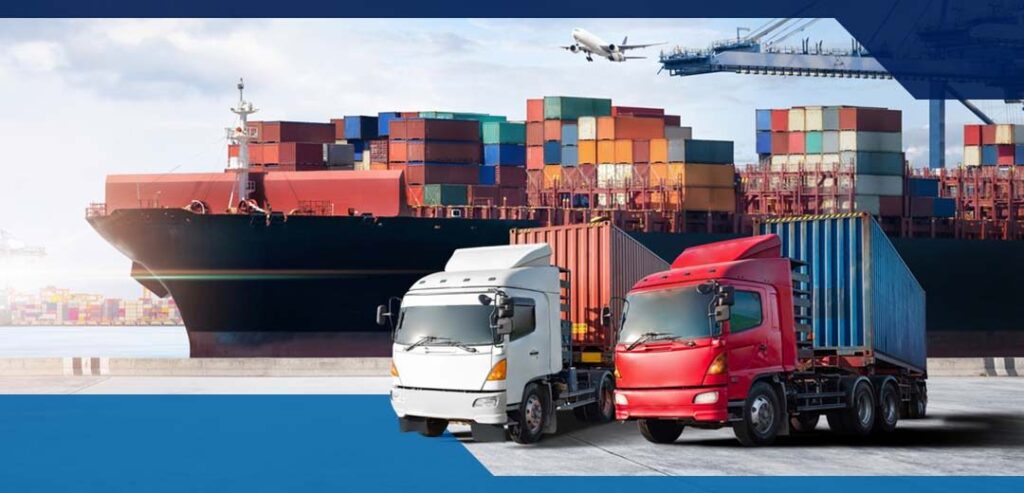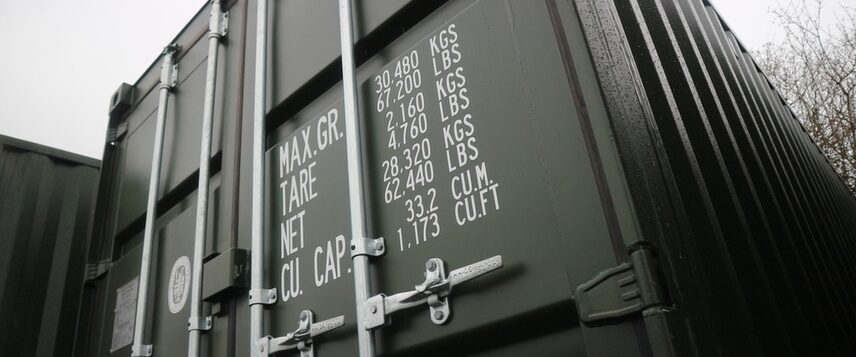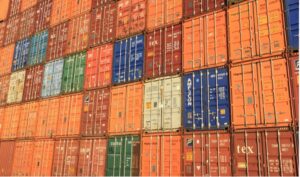For businesses and individuals alike, navigating the world of international shipping can feel like traversing a labyrinth. When it comes to getting goods from China to the UK, a crucial element is understanding the factors impacting shipping costs. This comprehensive guide will equip you with the knowledge to demystify the process, optimize your budget, and make informed decisions about shipping your goods.
Understanding the Importance of Affordable Shipping

In today’s competitive landscape, keeping shipping costs under control is paramount. Here’s why affordable shipping matters:
- Profitability: Excessive shipping costs can eat into your profit margins. By securing cost-effective solutions, you can maintain competitive pricing and maximize your earnings.
- Customer Satisfaction: Competitive shipping rates translate to lower product costs for your end customer. This fosters customer loyalty and encourages repeat business.
- Global Reach: Affordable shipping allows you to expand your market reach to the UK without prohibitive costs.
By prioritizing cost-efficiency in your China-to-UK shipping strategy, you unlock a gateway to increased profitability and a wider customer base.
Factors that Affect Shipping Costs from China to the UK
Several factors contribute to the final cost of shipping your goods from China to the UK. Here’s a breakdown of the key influences:
- Weight and Dimensions: Shipping costs are typically calculated based on the weight (actual or dimensional) of your cargo. Heavier and bulkier items naturally cost more to transport.
- Shipping Method: The speed and cost of your shipment depend on the chosen method (air freight, sea freight, etc.). Air freight is faster but more expensive, while sea freight offers a cost-effective option but with longer transit times.
- Origin and Destination: The specific ports of origin and arrival in China and the UK can influence costs due to varying distances and fuel surcharges.
- Fuel Costs: Fluctuations in global fuel prices can impact shipping costs. Carriers may adjust rates based on current fuel market conditions.
- Customs Duties and Taxes: Depending on the nature of your goods, you may incur additional fees for customs clearance, import duties, and VAT (Value Added Tax) in the UK.
- Additional Services: Opting for services like door-to-door delivery, insurance, or packing assistance can add to the overall cost.
By understanding these factors, you can make informed decisions about packing, selecting the most cost-effective shipping method, and potentially negotiating with carriers to optimize your budget.
Decoding the Different Shipping Options from China to the UK

The two primary options for shipping from China to the UK are air freight and sea freight. Each method offers distinct advantages and disadvantages:
- Air Freight:
- Pros: Fastest delivery times (typically 3-8 days), ideal for time-sensitive cargo or perishable goods.
- Cons: Significantly higher costs compared to sea freight, limited weight and size capacity for individual shipments.
- Sea Freight:
- Pros: Most cost-effective option for bulkier or heavier goods, offers two subcategories:
- Full Container Load (FCL): When your shipment fills an entire container, offering the most economical rate per unit.
- Less Than Container Load (LCL): When your shipment doesn’t fill a container, you share space with other cargo, resulting in a slightly higher rate per unit compared to FCL.
- Cons: Significantly longer transit times (typically 25-60 days), not suitable for urgent deliveries.
- Pros: Most cost-effective option for bulkier or heavier goods, offers two subcategories:
The optimal choice between air and sea freight hinges on your specific priorities – speed versus cost. Consider the value and urgency of your goods when making this crucial decision.
Air Freight Shipping from China to the UK
If speed is of the essence, air freight is the way to go. Here’s a closer look:
- Delivery Times: Expect deliveries within 3-8 business days, depending on the chosen service and route.
- Costs: While the most expensive option, air freight costs have become more competitive in recent years. Obtaining quotes from multiple carriers is crucial to secure the best rates.
- Considerations: Air freight has limitations on weight and size. Be mindful of these restrictions when packaging your goods. Additionally, factor in potential customs clearance delays that could extend delivery times.
For high-value goods, perishables, or situations requiring rapid delivery, air freight remains a viable solution despite the higher costs involved.
Sea Freight Shipping from China to the UK
For budget-conscious individuals or businesses shipping bulkier or heavier items, sea freight is the preferred option:
- Delivery Times: Prepare for longer transit times, typically ranging from 25 to 60 days, depending on the route and chosen service.
- Cost Considerations: When utilizing sea freight, explore the options of FCL (Full Container Load) and LCL (Less Than Container Load). FCL offers the most cost-effective rate per unit when your shipment fills an entire container. However, if your shipment doesn’t fill a container, LCL allows you to share space with other cargo, incurring a slightly higher cost per unit compared to FCL.
- Suitable Cargo: Sea freight is ideal for large quantities of non-perishable goods, machinery, building materials, furniture, and other bulky items.
Comparing Shipping Services and Providers

With a grasp of the different shipping methods, it’s time to delve into comparing service providers. Here are some key aspects to consider:
- Reputation and Reliability: Choose a carrier with a proven track record of on-time deliveries and secure cargo handling. Research online reviews and industry recommendations.
- Service Offerings: Compare the range of services offered by different providers. Some may specialize in specific cargo types, offer additional services like customs clearance assistance, or provide real-time shipment tracking.
- Cost Structure: Obtain quotes from several carriers to compare their pricing models. Be mindful of hidden fees or additional charges that may not be readily apparent. Consider factors like minimum order quantities, fuel surcharges, and inland transportation costs within China and the UK.
- Communication: Ensure the chosen provider offers clear and consistent communication channels. Responsive customer service is crucial for addressing any concerns or inquiries throughout the shipping process.
By carefully evaluating these factors, you can select a shipping service provider that aligns with your specific needs and budget.
Tips for Finding Affordable Shipping Rates from China to the UK
Negotiation is a valuable tool when securing cost-effective shipping rates. Here are some pointers to help you optimize your budget:
- Consolidate Shipments: If you have multiple orders from different suppliers in China, consider consolidating them into a single shipment. This can significantly reduce costs compared to sending individual packages.
- Negotiate Volume Discounts: When dealing with larger quantities of goods, negotiate volume discounts with potential carriers. Higher shipment volumes often translate to lower rates per unit.
- Plan in Advance: Booking your shipment well in advance allows carriers to offer more competitive rates compared to last-minute requests.
- Be Flexible with Delivery Times: If speed is not a critical factor, consider opting for slower but cheaper shipping options. Even slight variations in transit times can result in substantial cost savings.
- Utilize Online Comparison Tools: Several online platforms allow you to compare quotes from various shipping companies. Leverage these tools to find the most cost-effective solution for your specific needs.
By implementing these strategies, you can effectively negotiate and secure affordable shipping rates for your China-to-UK shipments.
Customs and Import Regulations

Understanding customs regulations in the UK is essential for a smooth shipping experience. Here’s a basic overview:
- Required Documentation: Ensure you have all necessary documentation for customs clearance, including commercial invoices, packing lists, certificates of origin, and any applicable import licenses.
- Duty and Tax Implications: Depending on the nature and value of your goods, you may be liable for import duties and VAT (Value Added Tax) upon arrival in the UK. Research these requirements beforehand to avoid any unexpected costs or delays.
- Working with a Customs Broker: Consider working with a customs broker to navigate the complexities of customs regulations and ensure seamless clearance of your goods.
By familiarizing yourself with these customs procedures, you can avoid delays and unnecessary expenses associated with customs clearance in the UK.





